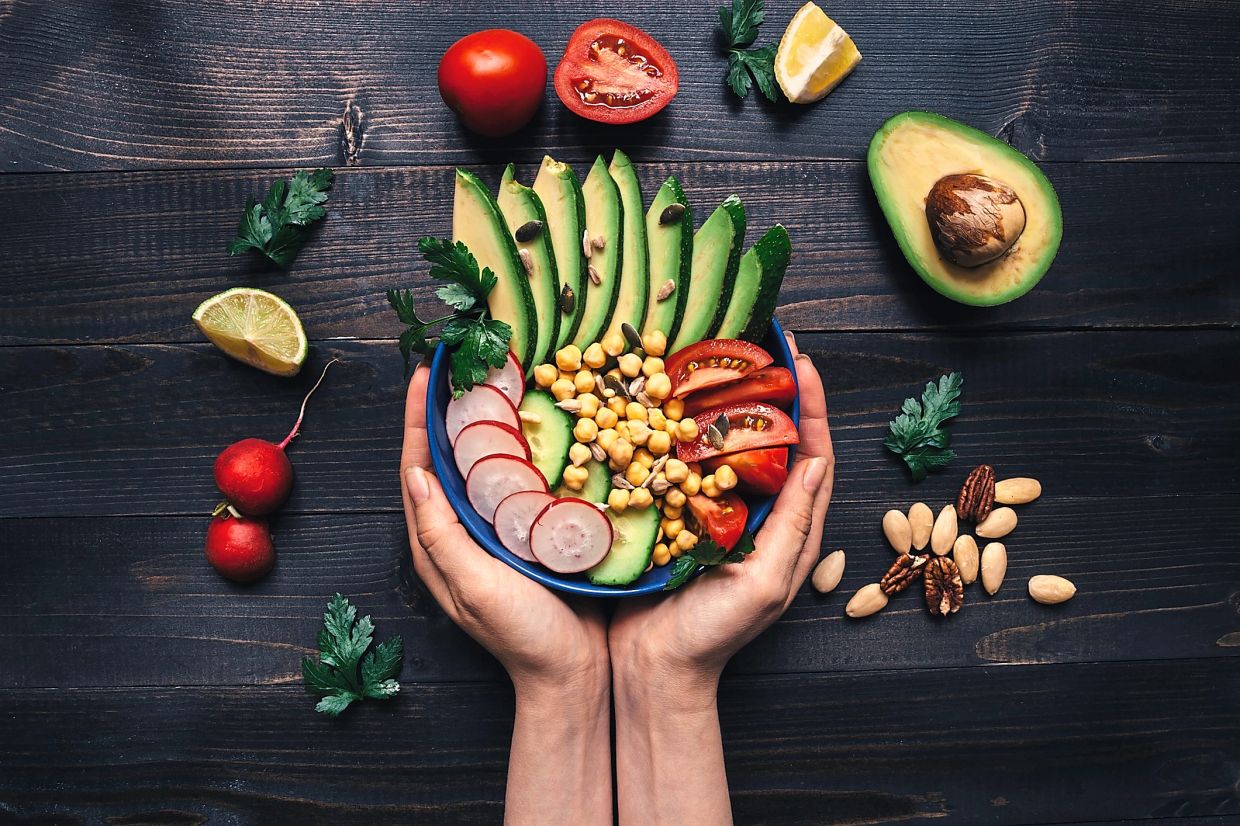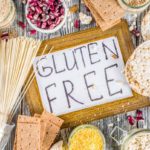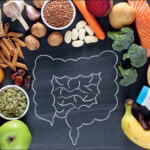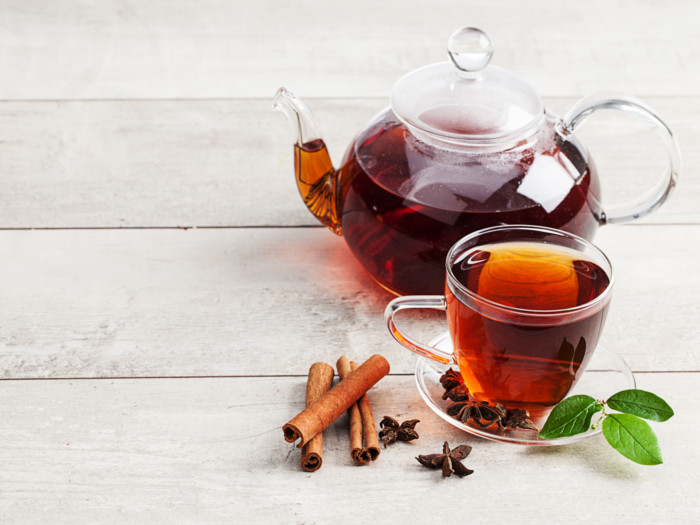Some Foods to Eat with Crohn’s Disease
Getting to know the foods to eat with crohn’s disease is quite imperative since this disease is a lifelong condition that causes inflammation and irritation in parts of the digestive tract.
Like ulcerative colitis, Crohn’s disease is an inflammatory bowel disease (IBD).
During flare-ups, a person may benefit from eating soft, bland, and well-nutritious foods. It may also be best to avoid foods that cause inflammation.
This article discusses the symptoms of Crohn’s disease flare-ups and discusses the best foods to eat during flare-ups. We also look at the best foods to avoid during a flare-up.
Symptoms of Crohn’s Disease
Crohn’s disease may cause or exacerbate the following symptoms:
– Diarrhea
– Gas
– Abdominal pain and cramps
– Nausea
– Loss of appetite
– Persistent loss of appetite and diarrhea can lead to dehydration and malnutrition.
The rest of this article examines how certain foods and drinks affect Crohn’s symptoms.
Foods to Eat with Crohn’s Disease
Refined grain
Studies suggest that certain insoluble fibers may make his IBD symptoms worse. Refined grains have less insoluble fiber than whole grains, so they tend to pass through the digestive tract more quickly and easily and are less likely to cause inflammation.
Examples of refined grains are:
1. White bread
2. White rice
3. Pasta
4. Plain cracker
5. Rice snack
Low Fiber Fruit
Low-fiber fruits are easy on the digestive system and contain a variety of nutrients.
For example:
1. Banana
2. Honeydew melon
3. Watermelon
4. Cantaloupe
5. Peach
The amount of fiber in fruits changes as they ripen. Ripe fruits generally have less fiber than immature fruits.
Fruit preparation
Regarding foods to eat with crohn’s disease, removing the skin or peel from the fruit can reduce the amount of insoluble fibers such as lignin and cellulose it contains.
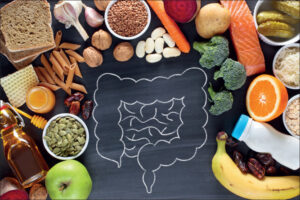
Poaching and canning fruit can also reduce the amount of fiber. In general, the more processed the fruit, the easier it is for the body to digest.
Canned and cooked fruit are often low in fiber. However, they can contain large amounts of sugar.
These fruit concoctions can increase intestinal tolerance, but people with Crohn’s disease should consume them in moderation, as over-consumption may cause symptoms.
Vegetable
Many vegetables are rich in dietary fiber. However, just like any fruit, peeling removes a layer of insoluble fiber.
Cooking vegetables makes them easier to digest and reduces their fiber content.
Also on foods to eat with crohn’s disease, fats can irritate the digestive system and make symptoms of Crohn’s disease worse, so you should limit the use of oil or butter when frying or frying vegetables. You may want to boil or steam them instead.
Lean protein
Protein is an important part of a balanced diet and is vital to your overall health. However, many animal protein sources are also rich in dietary fat.
Excessive consumption of animal fats is a risk factor for developing many IBDs, including Crohn’s disease. Eating large amounts of dietary fat may also exacerbate his existing IBD symptoms. Prioritizing lean protein sources can help you maintain a proper diet while minimizing your risk of IBD symptoms.
Fatty fish
Not all fat is bad for his IBD sufferer. Oily fish contain healthy fats, including omega-3 fatty acids. These fight inflammation and may help reduce the risk of heart disease and certain types of cancer.
Health experts recommend eating at least two servings of fatty fish for her a week. These include trout, salmon, mackerel, herring, tuna and sardines. To keep the fat content as low as possible, grill the fish or bake it in a little vegetable oil.
Yogurt and other dairy products
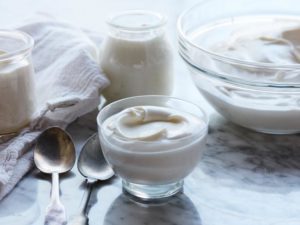
Many yogurts contain probiotics, which are healthy bacteria that help reduce inflammation in the gut.
It has been suggested that the evidence is insufficient to understand whether other dairy products such as milk and cheese may be high in calcium.
Manufacturers can also fortify them with vitamin A.
However, many contain lactose, a type of sugar. Some doctors recommend that people with Crohn’s disease eliminate lactose from their diet.
Drink
Still drinks help keep you hydrated and increase your food intake without upsetting your stomach.
Juice
Many vegetable and fruit juices are low in fiber but retain high levels of vitamins and minerals. Manufacturers may fortify some products with additional nutrients.
Regarding the foods to eat with crohn’s disease, while it’s best to avoid sugar during Crohn’s disease, drinking a glass of unsweetened diluted fruit juice daily can increase your nutritional intake as part of a varied diet. Vitamin C in fruit juice also helps your intestines absorb iron.
Protein shakes and meal replacements
People with Crohn’s disease may not tolerate solid foods. In such cases, doctors may recommend a liquid diet.
Protein shakes are the perfect way to maximize calories and protein in a liquid diet. It’s important to choose a protein shake with a low amount of added sugar.
Green Tea
Drinking green tea may benefit people with Crohn’s disease. Some studies suggest that green tea may have anti-inflammatory properties.
This helps reduce the symptoms of Crohn’s disease. Green tea is also a healthy alternative to coffee and sugary drinks, which can worsen the symptoms of Crohn’s disease. It is effective to choose products that do not contain in.
Limit These Foods
Some foods can trigger or exacerbate Crohn’s disease. For example:
1. Full grain
2. Fruits and vegetables with skin and seeds
3. Cruciferous vegetables such as broccoli and cauliflower
4. Fatty red meat
5. Saturated fats, such as butter, coconut oil, and margarine
6. Salty foods, including processed and cooked foods
7. Spicy food
8. Caffeine
9. Alcohol
10. Carbonated drinks such as soda
Summary
A flare-up of Crohn’s disease can cause diarrhea, abdominal pain, and loss of appetite. Continued symptoms can lead to malnutrition and dehydration.
During a flare-up, it’s best to drink plenty of fluids and avoid foods that make symptoms worse. Foods that are easy to digest and rich in nutrients can help relieve symptoms and promote healing.
During remission, it is important to eat a balanced and healthy diet. It is recommended that you consult your doctor or dietitian before making any significant dietary changes.
Source: medical news today
Foods to help with Constipation

A graduate of Computer Science and Information Management Technology. Diploma – Caregiving, Certificates – Dementia and Diabetes Awareness and Management. A researcher, blogger, songwriter, singer and acoustic guitarist. Born in an environment where natural talents such as healing are imparted at our natural birth. This natural talents of healing is the result of our genetic inheritance and the training from family environment.

